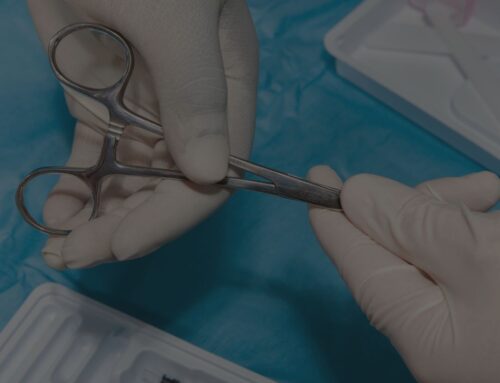
Today the Supreme Court of the United States issued its decision in US v. Skrmetti, the case challenging Tennessee’s ban on gender-affirming care for youth. The ban, along with every similar statewide ban, contains a hypocritical exception for intersex genital mutilation (IGM) —non-consensual surgeries imposed upon intersex infants and young children. The Court, in a 6-3 decision, allowed the discriminatory law to stand.
While Trump’s administration and court appointees attempt to control our bodies, lives, families, and healthcare, we will not stop working toward a better world for everybody.
Intersex and transgender communities will not back down. Many intersex youth need access to gender-affirming care just as transgender youth do, and we all deserve the right to bodily autonomy. No matter what, we are showing up with pride from parades to state capitols. We are strong: building support networks for our communities and preparing for the legal battles still to come. And we are free: we exist, and we will not be erased whether or not the majority of this Court is ready to acknowledge us.
The Court’s decision shamefully fails to protect the rights of both transgender and intersex youth. Tennessee’s SB 1 banned life-saving gender-affirming care for minors, but allowed for the same hormonal and surgical interventions when performed on nonconsenting children with intersex variations – referred to as “congenital defect[s]” in the text of the law. This is an exception for the non-consensual surgeries still performed on intersex infants and young children across the country.
interACT submitted an amicus brief to the Court (together with the Harvard Law School LGBTQ+ Advocacy Clinic and pro bono counsel from Patterson Belknap Webb & Tyler) highlighting how the Tennessee ban promotes a hypocritical exception for IGM. Our brief pointed out how this exception – which specifically depends on whether a person has a variation in their physical sex characteristics – shows the law is plainly based on sex. Courts must look more closely at such laws since they may be promoting unconstitutional sex discrimination. Nevertheless, a majority of the Justices refused to treat SB 1 as a law based on sex, and it was upheld.
A strong dissent by Justice Sotomayor called the majority decision “impossible to reconcile with the statute’s plain terms,” meaning that they blatantly ignored the fact that SB 1 clearly prioritizes conforming a person’s body to the sex assigned to them at birth. She wrote: “If a minor has some physical ‘abnormality’ (say, medically benign facial hair) typically perceived as ‘inconsistent’ with her sex identified at birth (female), SB1 deems it a ‘congenital defect’ that physicians can treat…. SB1 makes explicit that the very reason why a doctor can treat an adolescent female for ‘hirsutism (male-pattern hair growth),’ but not gender dysphoria is that the former will promote consistency with sex, while the latter does the opposite.”
The Court’s failure to see a sex-based classification when it is clearly spelled out in text is troubling. But our fight is far from over. No matter the lengths that some will go to justify eroding trans and intersex individuals’ rights, interACT and our allies will never stop fighting for bodily autonomy and self-determination for everyone in our communities. The health and well-being of trans and intersex young people flourish when they are empowered to make the personal medical decisions that are right for their own bodies and lives.
This Pride Month, we see more than ever the need for visibility, inclusion and freedom. We celebrate the strength of our communities that will continue to fight in solidarity together against attacks on our freedom.
interACT is the only legal advocacy organization in the country solely focused on defending intersex bodily autonomy. As legislative and judicial attacks escalate, your support powers the legal strategy, public education, and youth leadership that make resistance possible.
Become a monthly donor by joining the interCircle today—and help us keep fighting for a future where every body is free.






